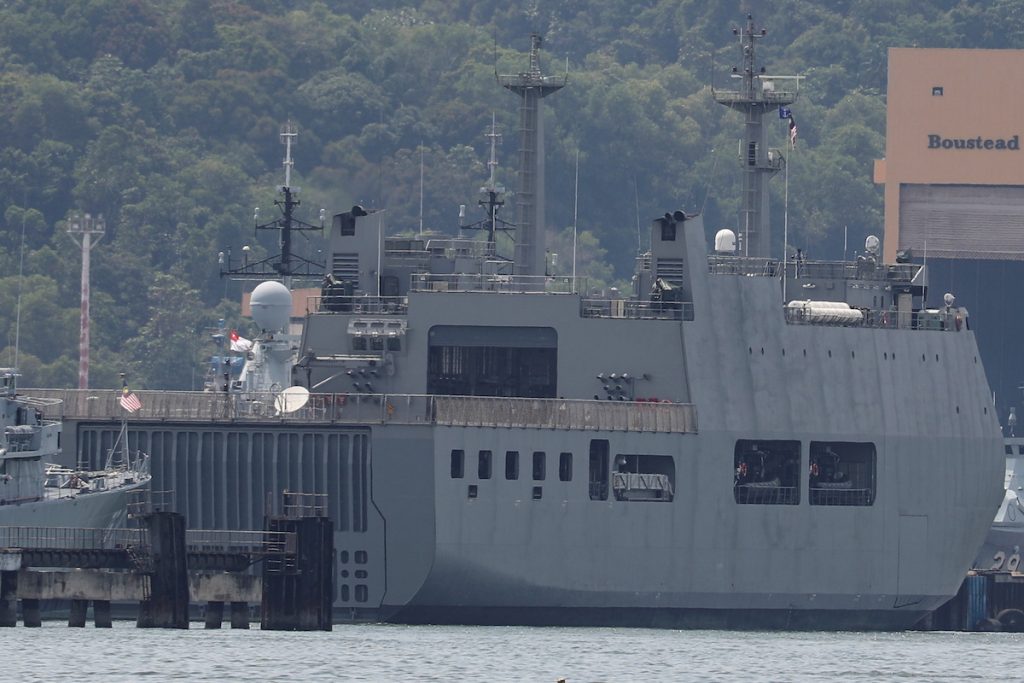Malaysia has sent more than 1,000 Myanmar nationals back to their strife-torn homeland late on Feb. 23 despite a court order to halt the deportation.
The 1,086 Myanmar citizens were sent back on three navy ships sent by Myanmar’s military, which seized power in a Feb. 1 coup, sparking weeks of protests from pro-democracy activists. Malaysia had initially said it would deport 1,200.
Malaysia vowed not to deport Rohingya Muslims or refugees registered with the UN High Commissioner for Refugees (UNHCR), but the agency has said at least six people registered with it were among the deportees.
Refugee groups also say asylum seekers from the minority Chin, Kachin and non-Rohingya communities fleeing conflict and persecution at home are among those being deported.
Khairul Dzaimee Daud, Malaysia’s Immigration Department director-general, said the repatriated Myanmar citizens did not include Rohingya refugees or asylum-seekers.
“All of those returned had agreed to be sent back voluntarily without being forced by any party,” Khairul Dzaimee said in a statement.
He did not respond to queries on why the repatriation was carried out despite the court-ordered halt.
The Kuala Lumpur High Court had granted a stay until 10 a.m. on Feb. 24, when it was scheduled to hear an application by rights groups for a judicial review to suspend the deportation.
Just before the ruling, the migrants were bussed in from across the country to the naval base at Lumut in western Malaysia where the Myanmar ships were docked.
Myanmar’s military-backed news outlet Myawaddy reported that the ships were bringing back Myanmar nationals who were not granted permission to come back under the former ruling civilian government.
An immigration official quoted by the outlet said: “We scrutinized that all of them are the citizens of our country, not Bengali,” using a derogatory term for Rohingya, members of a persecuted Muslim minority, that implies they are foreigners.

Those deported had been detained for immigration offences. Malaysia does not formally recognize refugees, treating them as undocumented migrants.
Amnesty International, one of the groups which requested the judicial review, called the decision to deport without a proper assessment of the returnees “inhumane and devastating”.
“Using indirect means to push people back to face grave human rights violations is essentially constructive refoulement,” Katrina Maliamauv, Amnesty Malaysia director, said in a statement.
“There are still huge, deeply concerning question marks over the status of those sent back today.”
The rights groups in their court filing had said among the deportees were three people registered with the UNHCR and 17 minors who have at least one parent in Malaysia.
Human Rights Watch have called on the Malaysian government to investigate the Immigration Department’s deportation of the Myanmar nationals.
“Malaysia’s immigration authorities have shown a blatant disregard both for the basic rights of Myanmar nationals and an order by the Malaysian High Court,” said Linda Lakhdhir, HRW’s Asia legal advisor.
“The immigration director-general has put lives at risk by sending people back to a country now ruled again by a military that has a long track record of punishing people for political dissent or their ethnicity,” she said.
Before the deportation the country’s Catholic bishops called upon the government not to carry it out.
“We call on the Malaysian government to not subject these Myanmar nationals into an uncertain and unknown fate by simply repatriating them in these uncertain times,” said the Catholic Bishops Conference of Malaysia (CBCM) in a statement.
“We also ask the that an international organization as the UNHCR be allowed to verify these individuals so that that their personal security can be guaranteed,” the CBCM said.
“As caring Malaysians, we should not be subject anyone to situations that are marked by fear, uncertainty and unease,” the bishops said.
Concerns over deportation of unregistered asylum-seekers have persisted, as UNHCR has not been allowed to interview detainees for more than a year to verify their status. The UNHCR had not been allowed access to those deported on Feb. 23.
HRW said as of December, more than 178,000 refugees were registered with UNHCR in Malaysia. More than 86 percent are from Myanmar, including more than 100,000 Rohingya, 22,000 Chin, and 29,000 from other ethnic communities. The total number of refugees in Malaysia, including those from Myanmar, is most likely much higher, the rights group said.
More than one million ethnic and religious minorities from Myanmar have fled persecution, protracted human rights violations, and mass atrocity crimes by the Myanmar military in the past decade, the rights group said.
With Reuters







